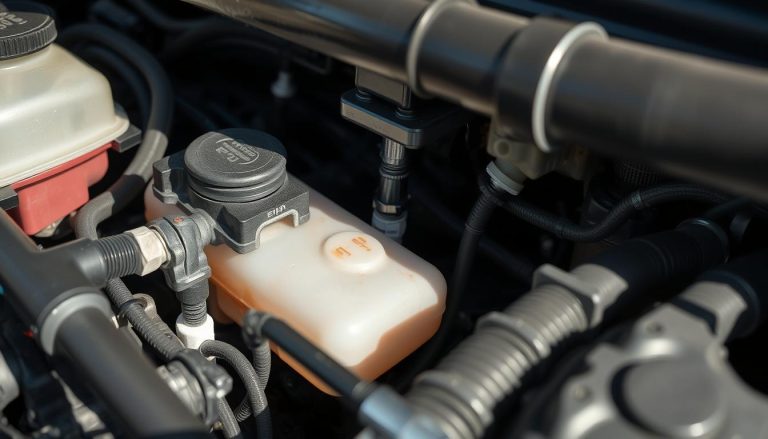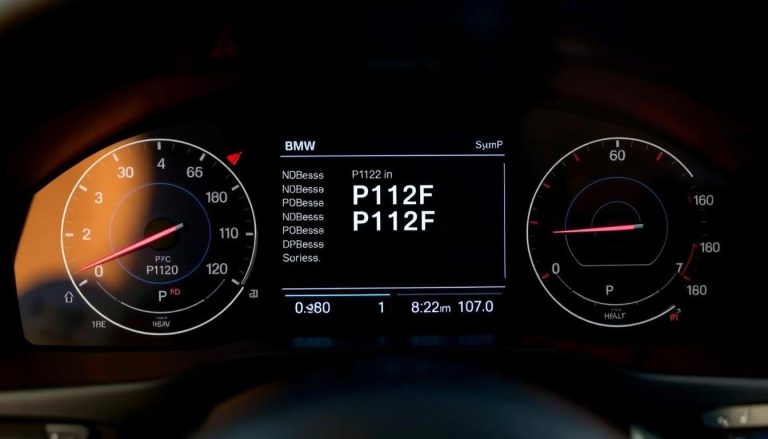When your check engine light flickers on, among the myriad of codes that could pop up, one that might catch your attention is P0168. If you’ve ever wondered what this enigmatic code means for your vehicle—and more importantly, how to tackle it—you’re in the right place. From understanding its implications to diagnosing and fixing the underlying issues, we’ll break down everything you need to know about P0168: Fuel Temperature Too High.
Key Takeaway
The P0168 code signals a fuel temperature issue that can affect engine performance. If you encounter this code, it’s crucial to address it promptly.
Ignoring the warning might lead to decreased fuel efficiency and increased emissions. The health of your engine could also be at stake if high temperatures persist.
Understanding this code equips vehicle owners with knowledge for better decision-making. You’ll know when to seek professional help or tackle minor repairs yourself.
Stay proactive with occasional checks on your vehicle’s systems. Awareness is key in keeping your car running smoothly while avoiding costly breakdowns down the line.
What does the P0168 code mean?
The P0168 code indicates that the fuel temperature is too high. This diagnostic trouble code (DTC) triggers when the engine control module (ECM) detects a fuel temperature reading surpassing its preset limits.
High fuel temperatures can lead to several issues, including reduced engine performance and potential damage to critical components. The ECM relies on accurate readings from various sensors to optimize overall vehicle efficiency and performance.
When this code appears, it’s essential for drivers to understand it signals a possible underlying problem with the vehicle’s fuel system or related components. Ignoring this warning could result in more severe complications down the line, affecting not just your car’s operation but potentially leading to costly repairs if left unaddressed.
What are the common symptoms of a P0168 code?
When your vehicle throws a P0168 code, it’s important to pay attention:
- Poor engine performance. This could manifest as sluggish acceleration or rough idling.
- An illuminated check engine light on your dashboard.
- You may experience increased fuel consumption.
- Unusual noises from the engine can occur.
What causes a P0168 code?
The P0168 code can arise from several underlying issues :
- Arises from issues with the fuel temperature sensor.
- Damaged wires or poor connections can lead to faulty readings. Corrosion or wear and tear often plays a role.
- A clogged fuel filter may restrict flow and raise temperatures unexpectedly.
- Excessive heat in the engine compartment can affect sensor performance.
- Software glitches within the ECU .
How is a P0168 code diagnosed?
Diagnosing a P0168 code involves several steps to pinpoint the exact issue. A professional mechanic will typically start with an OBD-II scanner. This tool reads the diagnostic trouble codes stored in your vehicle’s computer.
Once the P0168 code is identified, they’ll likely check for any related codes that could provide more context. It’s important because multiple issues can sometimes trigger similar codes.
Next, technicians will inspect the fuel temperature sensor and its wiring. Any signs of damage or corrosion can lead to erroneous readings.
After that, they may test the actual fuel temperature using specialized equipment. This helps confirm whether there’s genuinely a problem with overheating or if it’s just a faulty sensor sending incorrect data.
Visual inspections of other components involved in fuel management may be conducted to rule out additional complications affecting performance.
Is the P0168 code specific to certain car makes or models?
The P0168 code isn’t limited to specific makes or models. It can appear in a variety of vehicles across different manufacturers. This universal nature is one reason why understanding the code is essential for all car owners.
While some brands may experience this issue more frequently due to their engineering choices, no particular model is entirely exempt from encountering it. Factors like fuel system design and engine management technology play significant roles.
That said, certain cars might have unique quirks related to how they interpret fuel temperature. It’s wise to consult manufacturer-specific resources if you’re dealing with the P0168 code in your vehicle. Each car has its diagnostics that could offer deeper insights into the issue at hand.
So, while it’s a widespread concern, always check your owner’s manual for tailored advice based on your specific vehicle type and year.
Can I continue driving with the P0168 code?
Driving with the P0168 code is not advisable. This trouble code indicates that your vehicle’s fuel temperature is too high, which can lead to significant engine issues if ignored.
When the fuel heats up excessively, it can affect combustion efficiency. This may cause poor performance or even stalling while driving.
Moreover, higher temperatures can damage components like fuel injectors and pumps over time. Ignoring this warning could result in more costly repairs down the line.
If you see this code on your dashboard, it’s best to have a professional diagnose and fix the issue promptly. Continuing to drive might put both your safety and your wallet at risk.
How do I fix a P0168 – Fuel Temperature Too High ?
To fix a P0168 code, start with an inspection of the fuel temperature sensor. Ensure it’s functioning correctly and securely connected. A faulty sensor often triggers the code.
Next, check the wiring that leads to the sensor. Look for signs of damage or corrosion which could affect performance. If you find any issues, repair or replace those wires.
It’s also wise to examine the fuel tank and lines for blockages or leaks. Excessive heat can stem from poor circulation due to these obstructions.
If everything appears intact but the problem persists, consider replacing the fuel temperature sensor itself. Sometimes, just swapping out old components resolves underlying issues effectively.
After making repairs or replacements, clear any diagnostic codes using an OBD-II scanner before taking your vehicle for a test drive to ensure everything is working properly again.
How much does it cost to fix a P0168 code?
When dealing with a P0168 code, repair costs can vary significantly. Typically, you might expect to spend anywhere from $100 to $1,000.
The price largely depends on the underlying issue causing the high fuel temperature reading. If it’s just a faulty sensor, replacement could be relatively inexpensive. On the other hand, if there are problems with wiring or more extensive engine repairs needed, that can escalate quickly.
Labor rates also play a significant role in the overall cost. Depending on your location and the shop’s expertise, hourly rates may differ widely.
It’s always wise to get multiple quotes before proceeding with any fixes. This helps ensure you’re not overpaying for diagnostics or repairs related to your P0168 code.
Are there any other codes that may be related to a P0168 code?
When dealing with the P0168 code, it’s important to be aware of other potential trouble codes that could arise. These may indicate related issues in your vehicle’s fuel system or engine management.
Commonly associated codes include P0180, which refers to a fuel temperature sensor performance issue, and P0191, indicating an incorrect range for fuel pressure readings. Additionally, codes like P0251 can signal problems with the injection pump control circuit.
Addressing these related codes is essential for a comprehensive repair strategy. Ignoring them might lead to recurring problems or even exacerbate existing ones. If multiple trouble codes appear alongside the P0168 code, it’s wise to have a professional diagnostic performed.
Understanding all possible fault codes ensures you take proactive measures in maintaining your vehicle’s health and performance. By staying informed about related issues and their implications on your car’s functionality, you’ll be better prepared to tackle any automotive challenges that come your way.


